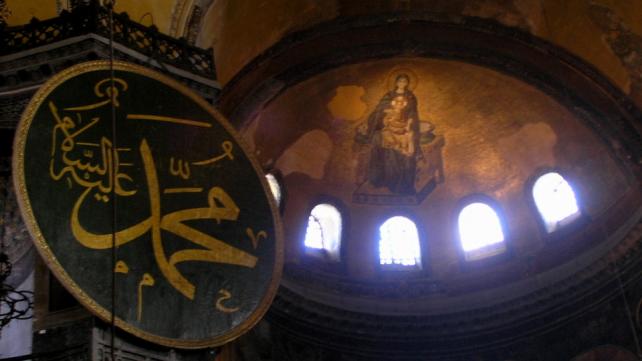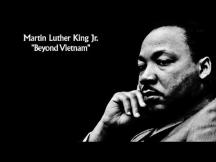
The fight for civil rights; the struggle against pornography; the aim for better children's television programming: these are concerns of most Muslims and a number of non-Muslims.
With talents and resources on both sides, can Muslims and non-Muslims work together on common causes for the greater good?
According to Jamal Badawi, a leading North American Islamic scholar, the answer is yes - with certain conditions.
The Quran: enjoining the good, forbidding the evil
In an interview with Sound Vision and RadioIslam.com, Badawi notes that Allah says in the Quran to "cooperate with one another on things that are righteous and pious and good and do not cooperate with one another in aggression or sin. That's a general directive" he says, aimed at not just Muslims, but non-Muslims as well.
Hilf ul Fudool: an example of cooperation from the Prophet Mohammed (peace and blessings be upon him)'s life
The Prophet himself was involved in enjoining the good and forbidding the evil with others in pre-Islamic times, as indicated by the pact known as Hilf UL Fudool.
This was a covenant to protect those who are weak and to make sure that business dealings are conducted without any cheating.
The pact came into being after a merchant from outside Makkah had sold some items to one of the chiefs of the Quraysh tribe in the city. But the chief refused to pay him. The man objected to this injustice.
In response, one of the respected men of the Quraysh, Abdullah ibn Jud'an invited a number of chiefs and noble people to his house to discuss the matter. They agreed to a covenant and decided to stand up for justice if any person, including strangers, visitors or merchants coming from outside, was mistreated or treated unjustly.
The group immediately told the Qurayshite to pay the merchant his due. After being pressured, the man complied.
"That seems to indicate to us that cooperating with anyone, when we are not compromising our principles to achieve the common good is something that should be welcome," says Badawi.
He adds, "even after he (the Prophet) received the revelation and became the Prophet of Allah, still he kept praising that particular covenant and he said that if it is invoked today I will respond. He didn't say he would have nothing to do with it, [since] that was in the pre-Islamic days. He simply still praised that kind of pact."
Based on this example, Badawi explains that many Muslim scholars are of the opinion that cooperation with non-Muslims is permissible provided:
1. It is something that is righteous, good and just.
2. Muslims do not compromise their basic principles and stances.
Badawi adds to these conditions:
3. Muslims understand what benefit will come to them as a result of such cooperation.
4. Muslim participation is not being misused to condone a certain group's erroneous beliefs.
Badawi gave an example of how this could happen: if a group of homosexuals hold a rally against secret evidence. While this cause is one both groups agree with, there are drawbacks to this type of cooperation.
"I think one has to think twice before really being party to that," he says. "A Muslim participating in a group like that might be misconstrued as approving of their (homosexuals') particular way of life which we all know is totally against what the Quran and Sunnah teach".
Areas where Muslims and non-Muslims can work together
Badawi notes that every situation is unique, and Muslims must carefully weigh the harms and benefits of cooperation before choosing which causes to work with non-Muslims on.
"One has to look into the given situation because there may be some organizations who might have a number of causes, one of which is compatible with Islam, the other is not," he says.
"Is there a possibility of misunderstanding if you participate in that activity, that you endorse other things that are not Islamic? Or is the activity basically unique and specified like a coordinated demonstration for the rights of Palestinians or for other things that affect Muslims and non-Muslims alike?"
The price Muslims pay for non-participation
While caution must be exercised, Muslims must not shun legitimate Muslim-non-Muslim cooperation.
"If there is a common cause that is for the benefit of the people and it is consistent with Islam or even called for by Islam even though there might be disagreement on some details and Muslims just sit there and watch, there are a number of prices to be paid."
Badawi gave four possible negative effects of such apathy:
One: Muslims are living in a non-Muslim society where their children and families are being raised. To not oppose evil and enjoin the good will affect Muslims and their families sooner or later.
Two: according to the Quran, one of the characteristics of the Muslim Ummah that made it eligible to be called the best community of believers raised for humanity is ordaining the good and forbidding the evil. By shunning legitimate forms of cooperation, Muslims are not fulfilling this duty.
Three: Islam by its nature is not only for Muslims. It is a mercy to all human beings. So Muslims should have mercy for others, Muslim and non-Muslim, and care for their well-being and guidance.
Four: by not participating Muslims promote the misunderstanding that they don't care, even about the common good. Their absence on legitimate issues of mutual concern will be notable, especially where other groups are actively involved and supportive.
Talking about the upcoming Million Family March on October 16, spearheaded by the Nation of Islam's Louis Farrakhan, Badawi, who was one of the featured speakers at a Nation of Islam conference this summer, emphasized the importance of using the above-mentioned criteria to make this decision.
Badawi did, however, say, "I would have felt much more assured if the statement that appears in their paper (the Nation of Islam newspaper the Final Call) still promoting the old ideas of God incarnating in Fard Muhammad and so on, if as a show of goodwill and sincere intention, that this at least should be removed from the paper that's going around the country."
Photo Attribution: http://www.flickr.com/photos/landschaft/69397860/





Comments
it was a great information i've ever read...thanks for helping me out my curiosity about the Muslims....
Location
salam alaekum,thanks for the article,i was pondering over this particular subject for some times ,i am grateful that i got the answer.May ALLAH HELP YOU.Please what can you say about www.thequran.com
Location
Assalamu AlaikumAlhumdulillah, we have many good examples of how and why we should work with ALL members of our community, from our beloved Prophet Muhammad.I also want to add that if we Muslims are not "a the table" within the various organizations within our community - others will speak for us and define who we are. We must speak not only speak up about who Muslims are - but let people know who we are by our good character and good deeds. We must "be" our Islam - even when we are tired, bored and feel we are not making a difference.Jazakum Allahu Khairun for sharing this with us.
Location
Salaam alaiykum and thank you once again on these thought provoking articles. Just to bring to your attention that God calls us all the time in the Quran to "Think", to "Ponder" to "Reflect" and that is what we should be doing when we come across a situation in life. To ponder over it, how to solve it or go about effecting it. We should leave The Almighty's work of judging people to Him and just carry on our life according to the rules provided by Him. Each one of us is responsible for our deeds and answerable for them. We have to stop looking at the "Other" person as a 'Hindu', 'Christian', 'Jew' 'Sikh' or whoever, we have to look at them as 'Humans' answerable for their deeds. I think that should be able to solve some of our problems in this world today. Just sharing my thoughts with you.
Location
Add new comment